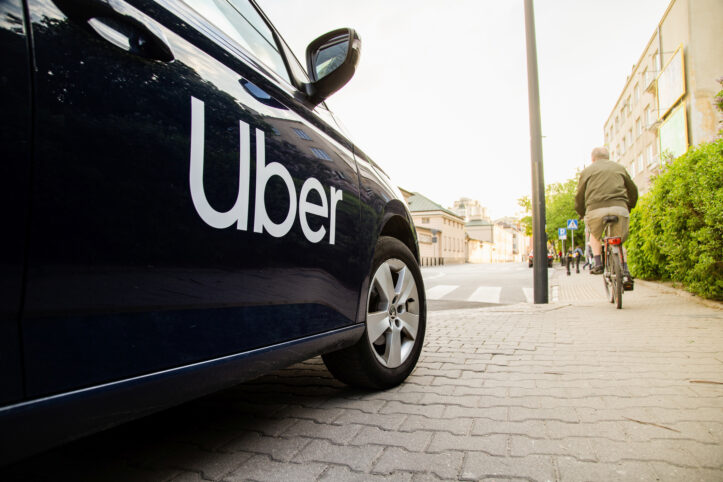
California Supreme Court Rules Uber and Lyft Drivers Can Remain Independent Contractors
The California Supreme Court ruled on Thursday that app-based ride-hailing and delivery services like Uber and Lyft can continue classifying their drivers as independent contractors rather than employees.
This unanimous decision is a significant win for tech giants and concludes a lengthy legal dispute between labor unions and tech companies over the employment status of app-based service workers in California.
The ruling upholds a 2020 voter-approved law that classifies drivers for companies like Uber and Lyft as independent contractors, which means they are not entitled to benefits like overtime pay, paid sick leave, and unemployment insurance. Opponents argued that the law was illegal because it restricted the state Legislature’s ability to amend or pass new laws about workers’ compensation programs.
In 2021, a lower court deemed the measure illegal, but an appeals court overturned that decision last year. The California Supreme Court’s ruling allows companies like Uber and Lyft to maintain their current operations.
Uber hailed the ruling as a “victory” for drivers. In 2020, Uber, Lyft, and DoorDash collectively spent $200 million on a campaign to support the law’s passage.
“Whether drivers or couriers choose to earn just a few hours a week or more, their freedom to work when and how they want is now firmly etched into California law, putting an end to misguided attempts to force them into an employment model that they overwhelmingly do not want,” the company said in a statement.
The ruling is a setback for labor unions and their allies in the Legislature, who sought to secure more rights for drivers.
“What’s going on is not just. It’s not what California is about,” said Nicole Moore, president of Los Angeles-based Rideshare Drivers United. “It’s a sad day for workers.”
Labor unions vowed to continue advocating for drivers’ job protections and benefits, noting that an earlier ruling in the appeal process had allowed the Legislature to pass laws enabling drivers to join a union.
“We are committed to fiercely backing workers across our economy who have been written out and left behind and helping them knock down big obstacles to winning their union rights,” Service Employees International Union President April Verrett said in a statement.
In 2019, lawmakers passed a law targeting Uber and Lyft, requiring them to provide drivers with protections like minimum wage, overtime, health insurance, and expense reimbursement. This law redefined who qualifies as an employee versus an independent contractor in California.
While the law impacted various industries, it had the most significant effect on app-based ride-hailing and delivery companies, whose business models depend on contracting with drivers using their own vehicles. Under the 2019 law, these companies would have had to treat drivers as employees, significantly increasing their operational costs.
In November 2020, voters approved a ballot proposition exempting app-based ride-hailing and delivery companies from this law. The proposition included “alternative benefits” for drivers, such as a guaranteed minimum wage and health insurance subsidies for those averaging at least 25 hours of work per week.
Labor groups and drivers nationwide are pushing for better job protections, higher wages, and increased benefits. In Massachusetts, drivers are advocating for a groundbreaking ballot question that could grant them union rights if passed.
The recent ruling also has significant implications for legal professionals, such as Orange County Uber accident attorneys. With drivers classified as independent contractors, liability in accidents involving Uber vehicles remains complex. These attorneys specialize in navigating the intricate legal landscape to ensure that victims of accidents receive fair compensation. The decision reinforces the necessity for skilled legal representation, as independent contractor status can complicate issues of insurance coverage and liability. As ride-hailing services continue to operate under this classification, the role of specialized accident attorneys becomes increasingly crucial in advocating for the rights and protection of both drivers and passengers involved in these incidents.


